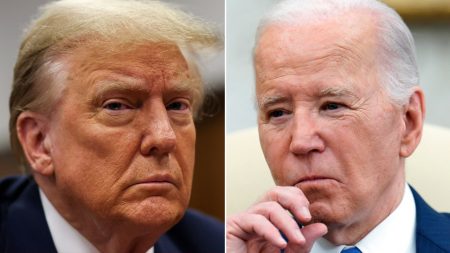In 2018, then-President Donald Trump implemented tariffs on a range of Chinese-made goods, causing prices for items such as luggage to increase significantly. Small retailers like Tiffany Zarfas Williams were forced to pass on these increased costs to consumers, leading to challenges in maintaining competitive pricing. Biden criticized Trump’s tariff policy, but ultimately decided to keep most of the tariffs in place, with the intention of raising the rate on certain imports. Although inflation has somewhat cooled with the tariffs in place, ongoing concerns about high prices could impact Biden’s approval ratings as he campaigns for reelection against Trump.
While Biden’s tariffs hit a smaller percentage of goods compared to Trump’s proposals, they still affected approximately $300 billion worth of imports, with plans to raise rates on some goods in the coming years. The tariffs, combined with other factors such as supply chain issues, have contributed to rising prices, particularly in industries like footwear and apparel. Companies like Deer Stags and Cap America found themselves having to raise prices or absorb the costs to remain competitive, with some manufacturers shifting production to other countries to avoid tariffs.
Economists generally agree that tariffs lead to higher prices for consumers, with estimates suggesting that Trump’s tariffs could cost the average American household $1,000 a year. While it’s challenging to isolate the impact of tariffs from other economic factors, studies indicate that they have played a role in driving up prices in certain industries. Industry trade groups have urged Biden to lift the tariffs to alleviate financial burdens on consumers and stimulate competition in the market. However, the Biden administration argues that tariffs are necessary to address China’s unfair trade practices and protect American workers.
Despite the arguments in favor of maintaining tariffs, various industry leaders believe that they are not an effective solution to issues like intellectual property theft and unfair trade practices by China. While Trump’s tariffs aimed to pressure China into addressing these issues, the desired outcomes were not fully realized. Biden has continued with a similar tariff policy, maintaining a stance of toughness on China without reaching a comprehensive trade agreement. Industry leaders feel that the tariff policy has not effectively addressed the core concerns with China’s trade practices and have urged for a more strategic approach to trade policy.
Keep Reading
Subscribe to Updates
Get the latest creative news from FooBar about art, design and business.
© 2024 Globe Echo. All Rights Reserved.














